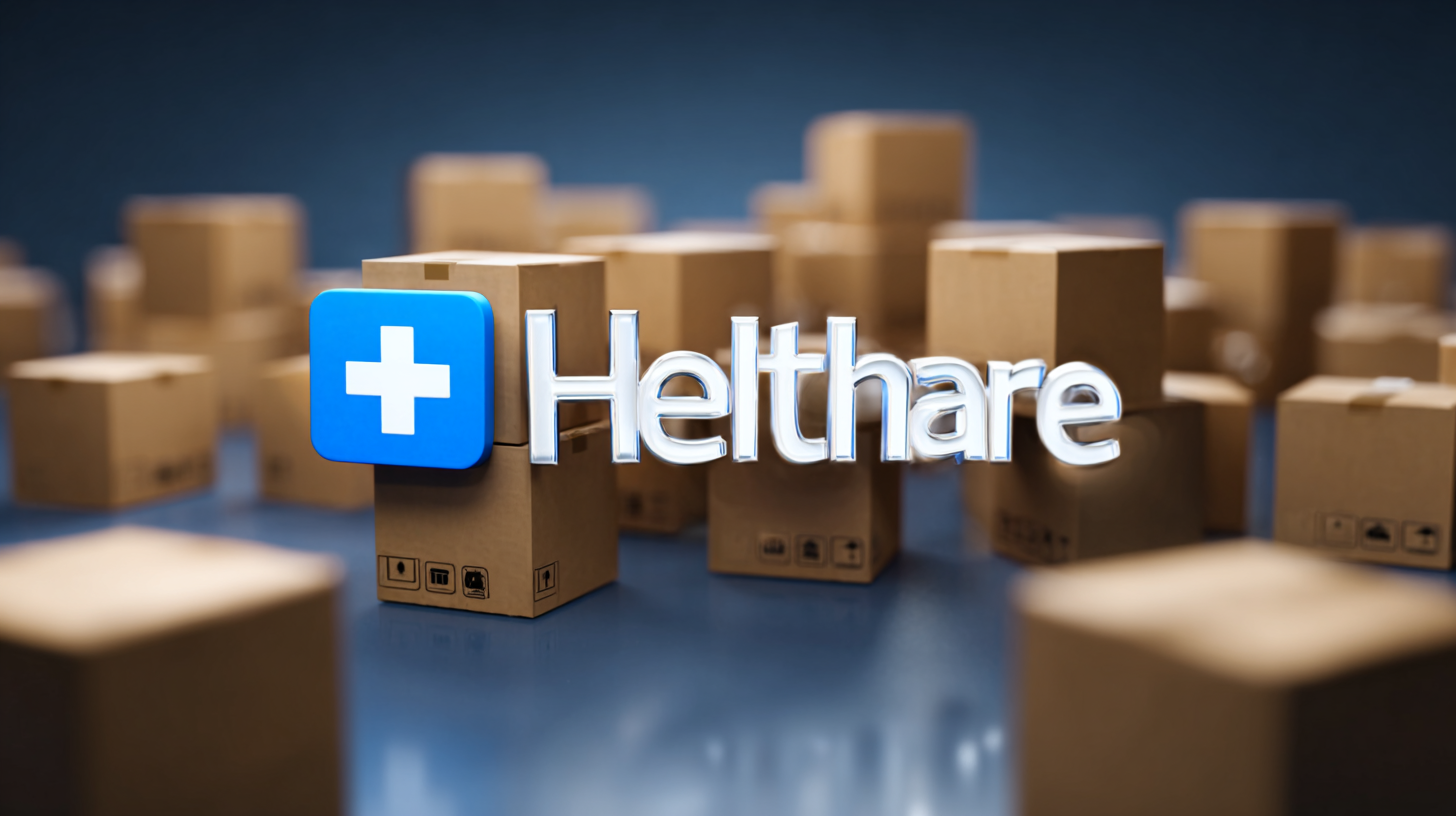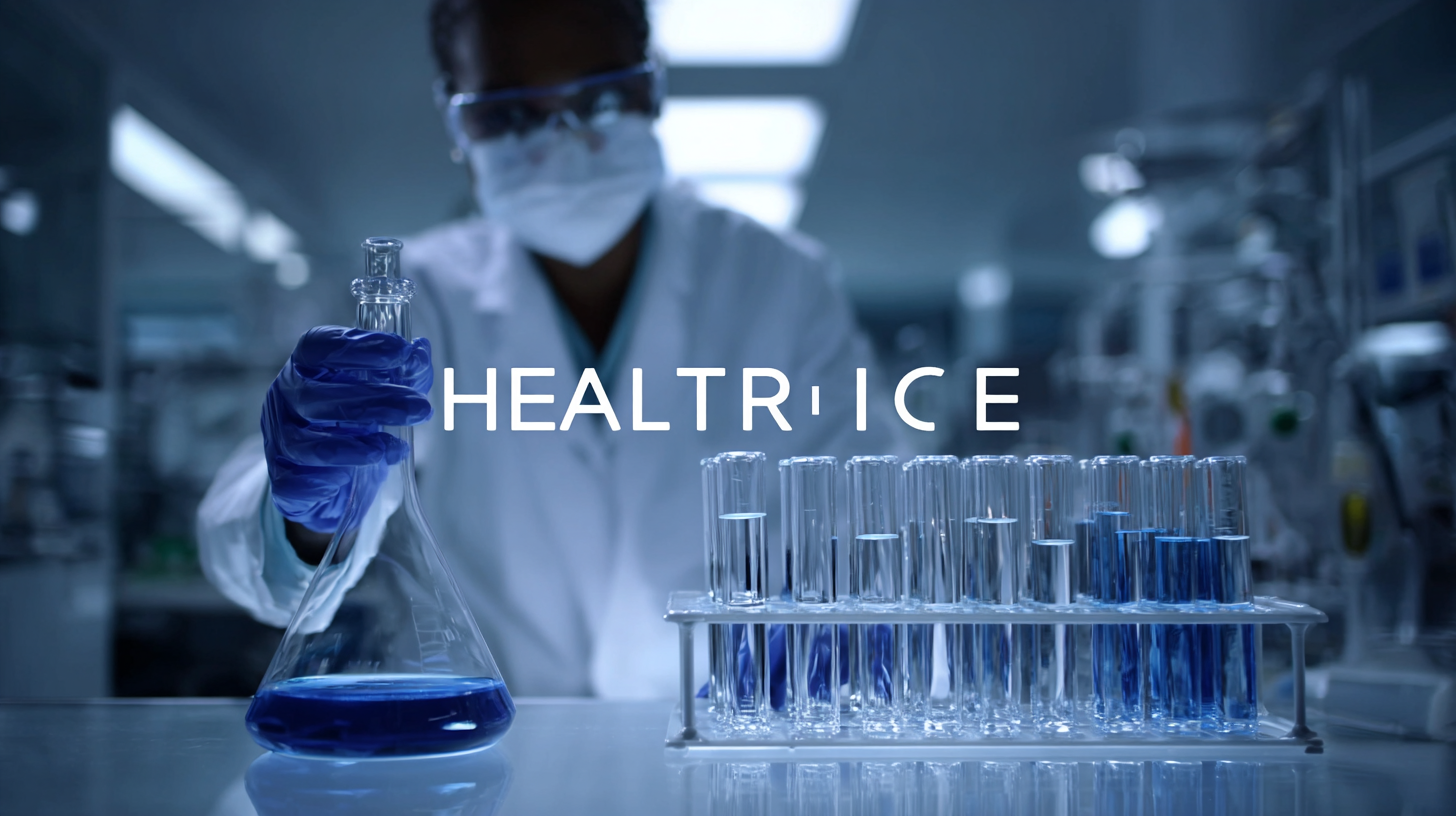Blog
Finding Top Suppliers for Best Healthcare Research Projects Made Easy
In today's rapidly evolving healthcare landscape, the imperative for high-quality research has never been greater. According to a report by Grand View Research, the global healthcare analytics market is expected to reach $50.5 billion by 2028, underscoring the increasing emphasis on data-driven decision-making in healthcare research. As organizations strive to uncover insights that drive innovation and improve patient outcomes, identifying top suppliers becomes a critical step in ensuring the success of these research projects. However, navigating the vast array of potential vendors can be daunting. By understanding the key attributes of reliable suppliers and employing strategic sourcing techniques, healthcare researchers can streamline their efforts, ultimately leading to more efficient execution of healthcare research initiatives. The quest for excellence in healthcare research begins with finding the right partners who are equipped to meet the unique demands of this complex field.

Identifying Key Criteria for Selecting Healthcare Research Suppliers
Selecting the right healthcare research suppliers is paramount for ensuring the success of any healthcare project. According to a report by Grand View Research, the global healthcare analytics market is expected to reach USD 50.5 billion by 2026, reflecting the increasing reliance on data-driven decision-making. When choosing suppliers, organizations should focus on their expertise in specific domains, technological capabilities, and their track record of delivering high-quality results.

Key criteria for selecting healthcare research suppliers include their proficiency in compliance with industry regulations and their ability to integrate innovative technologies, such as artificial intelligence and machine learning, into their research processes. A survey conducted by Research and Markets indicated that 68% of healthcare organizations prioritize suppliers who can demonstrate robust data security measures and maintain confidentiality, which are critical in an era where data breaches can have dire consequences. By honing in on these criteria, organizations can streamline their supplier selection process and enhance the overall quality of their healthcare research projects.
Exploring Trusted Platforms for Evaluating Potential Suppliers
In the ever-evolving landscape of healthcare research, selecting the right suppliers is paramount for ensuring the success and integrity of projects. Evaluating potential suppliers requires a strategic approach, leveraging trusted platforms that provide comprehensive insights into supplier capabilities and performance. According to a report by MarketsandMarkets, the global healthcare analytics market is expected to grow from $20.7 billion in 2020 to $50.5 billion by 2025, underscoring the increasing reliance on data-driven decision-making in supplier selection.
Platforms such as Capterra and G2 offer robust review systems where researchers can evaluate suppliers based on past performance, user feedback, and service offerings. These platforms aggregate data from numerous users, shining a light on supplier reliability and quality. Additionally, using analytics tools can reveal trends in supplier performance, highlighting factors like timely delivery, compliance with regulations, and innovation capabilities. As organizations strive for excellence in their healthcare research initiatives, integrating these resources ensures that they partner with suppliers who not only meet their immediate needs but also foster long-term collaboration and innovation.
Assessing Supplier Experience and Expertise in Healthcare Research
In the realm of healthcare research, the experience and expertise of suppliers play a pivotal role in the success of projects. According to a report by Grand View Research, the global healthcare market is expected to reach $11.9 trillion by 2027, with a substantial portion allocated to research and development. This underscores the necessity for healthcare organizations to partner with suppliers who not only understand their specific needs but also possess a proven track record in the industry.
Moreover, a recent study from Allied Market Research found that 70% of healthcare providers reported difficulties in identifying qualified suppliers that can deliver reliable data and innovative solutions. Therefore, assessing a supplier's experience is crucial; organizations should look for suppliers with a history of successful projects, relevant certifications, and recommendations from trusted sources. Furthermore, expertise can often be gauged by evaluating the supplier's previous research outcomes and their ability to integrate advanced technologies into their processes, ensuring that healthcare solutions are both effective and cutting-edge.

Building Strong Relationships with Healthcare Research Suppliers
Building strong relationships with healthcare research suppliers is essential in today’s complex healthcare environment. As consolidation in healthcare provider markets continues to be a focal point for policymakers, establishing trust and effective communication with suppliers is crucial. A solid partnership not only facilitates smoother project execution but also enhances collaboration, ensuring that both parties are aligned in their goals. This can lead to more innovative solutions and ultimately better outcomes for patients.
Moreover, the importance of relationships extends beyond just suppliers to include the physician-patient dynamic. Research indicates that successful interactions within these relationships lead to improved therapy adherence and patient satisfaction. Creating an ecosystem where healthcare organizations can securely exchange information also plays a significant role in supporting better health outcomes. In this interconnected landscape, fostering strong alliances with suppliers helps leverage resources and knowledge, ultimately contributing to the success of healthcare research projects.
Best Practices for Negotiating Terms and Contracts with Suppliers
Negotiating terms and contracts with suppliers can often feel daunting, especially in the healthcare research sector where stakes are high and precision is crucial. One of the key best practices in this area is to establish clear communication from the outset. Ensuring that all parties understand their roles, responsibilities, and expectations can help mitigate misunderstandings that can lead to disputes down the road.
Another significant aspect of effective negotiations is being aware of the specific industry regulations that may affect the contractual landscape. For instance, suppliers in certain regions may operate under unique rules that can complicate relationships. Recognizing this can lead to more fruitful negotiations, as both sides can work collaboratively to draft agreements that are not only comprehensive but also adaptable to local guidelines. Emphasizing flexibility within contracts allows for adjustments based on evolving situations, which is especially important in dynamic fields like healthcare research.